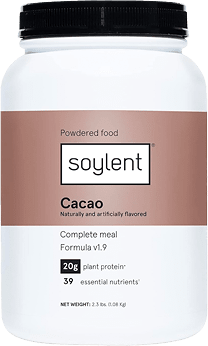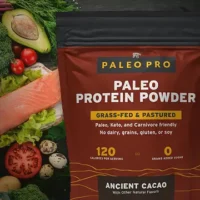Knowledge BaseYou're Questions Answered
What is soy protein powder?
Soy protein powder is a dietary supplement made from soybeans, a legume known for its high protein content and various health benefits. It is widely used as a plant-based protein source, especially among vegetarians, vegans, and those looking to diversify their protein intake. Soy protein powder is produced by extracting protein from soybeans, resulting in a concentrated form that can be easily added to foods and beverages to increase protein intake.
Production and Types of Soy Protein Powder
Soy protein powder is derived from soybeans through a process that involves cleaning, dehulling, and defatting the beans. The resulting soy flakes are then processed to remove carbohydrates and other non-protein components, leaving a high-protein product. There are different types of soy protein powder based on the degree of processing and protein concentration:
- Soy Protein Concentrate: This type contains about 70% protein and is made by removing some of the carbohydrates from defatted soy flakes. It retains more of the natural fiber found in soybeans and has a milder taste.
- Soy Protein Isolate: A more refined form, soy protein isolate contains around 90% protein. It is produced by further removing fats and carbohydrates, resulting in a highly concentrated protein source with minimal fat and carbohydrates.
- Textured Soy Protein (TSP): Also known as textured vegetable protein (TVP), TSP is made from soy protein concentrate and has a fibrous texture, making it a popular meat substitute in various dishes.
Nutritional Profile and Benefits
Soy protein powder is a complete protein, meaning it contains all nine essential amino acids that the body cannot produce on its own. This makes it a valuable protein source, especially for those following plant-based diets. Some key nutritional aspects and benefits of soy protein powder include:
- High Protein Content: With a high concentration of protein, soy protein powder is effective for supporting muscle growth, recovery, and overall health.
- Rich in Essential Amino Acids: Being a complete protein, it provides essential amino acids necessary for muscle protein synthesis and other bodily functions.
- Low in Fat and Carbohydrates: Especially in its isolate form, soy protein powder is low in fats and carbohydrates, making it suitable for those looking to control their intake of these macronutrients.
- Source of Phytoestrogens: Soy contains compounds called isoflavones, which have been studied for their potential health benefits, including supporting heart health and bone health1.
- Allergen Consideration: While soy is a common allergen, it is an excellent alternative for those who are lactose intolerant or allergic to dairy-based proteins.
Uses of Soy Protein Powder
Soy protein powder can be used in various ways to enhance protein intake, including:
- Protein Shakes and Smoothies: A convenient way to consume soy protein, especially post-workout.
- Baking and Cooking: Can be added to recipes for baked goods, pancakes, and other dishes to boost protein content.
- Meal Replacement: Used in meal replacement shakes or bars as a high-protein, low-calorie option.
- Messina, M., & Redmond, G. (2006). Effects of soy protein and soybean isoflavones on thyroid function in healthy adults and hypothyroid patients: A review of the relevant literature. Thyroid, 16(3), 249-258.
Related Questions
Protein vs Protein

Your Answer
We are a participant in the Amazon Services LLC Associates Program, an affiliate advertising program designed to provide a means for us to earn fees by linking to Amazon.com and affiliated sites.



